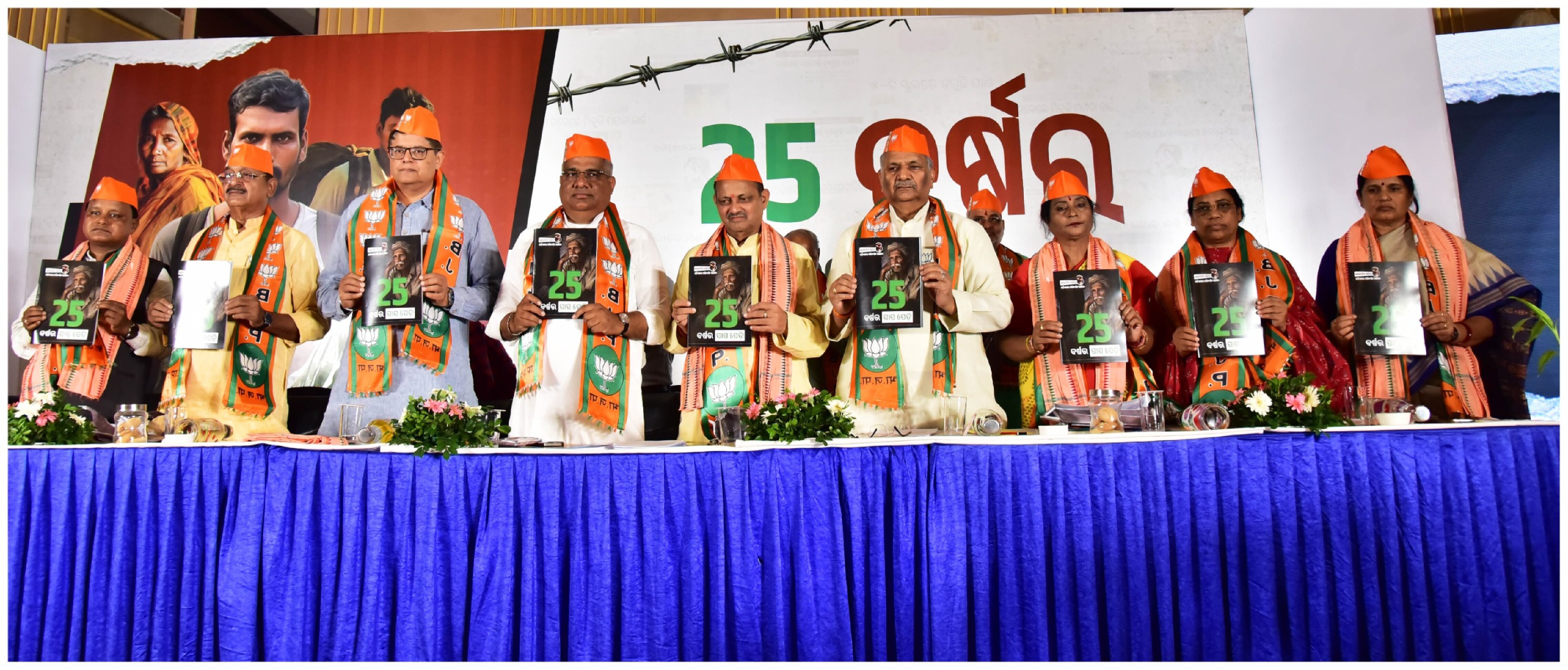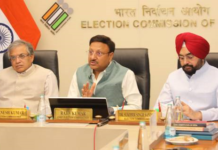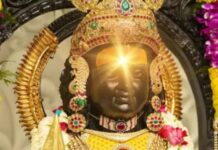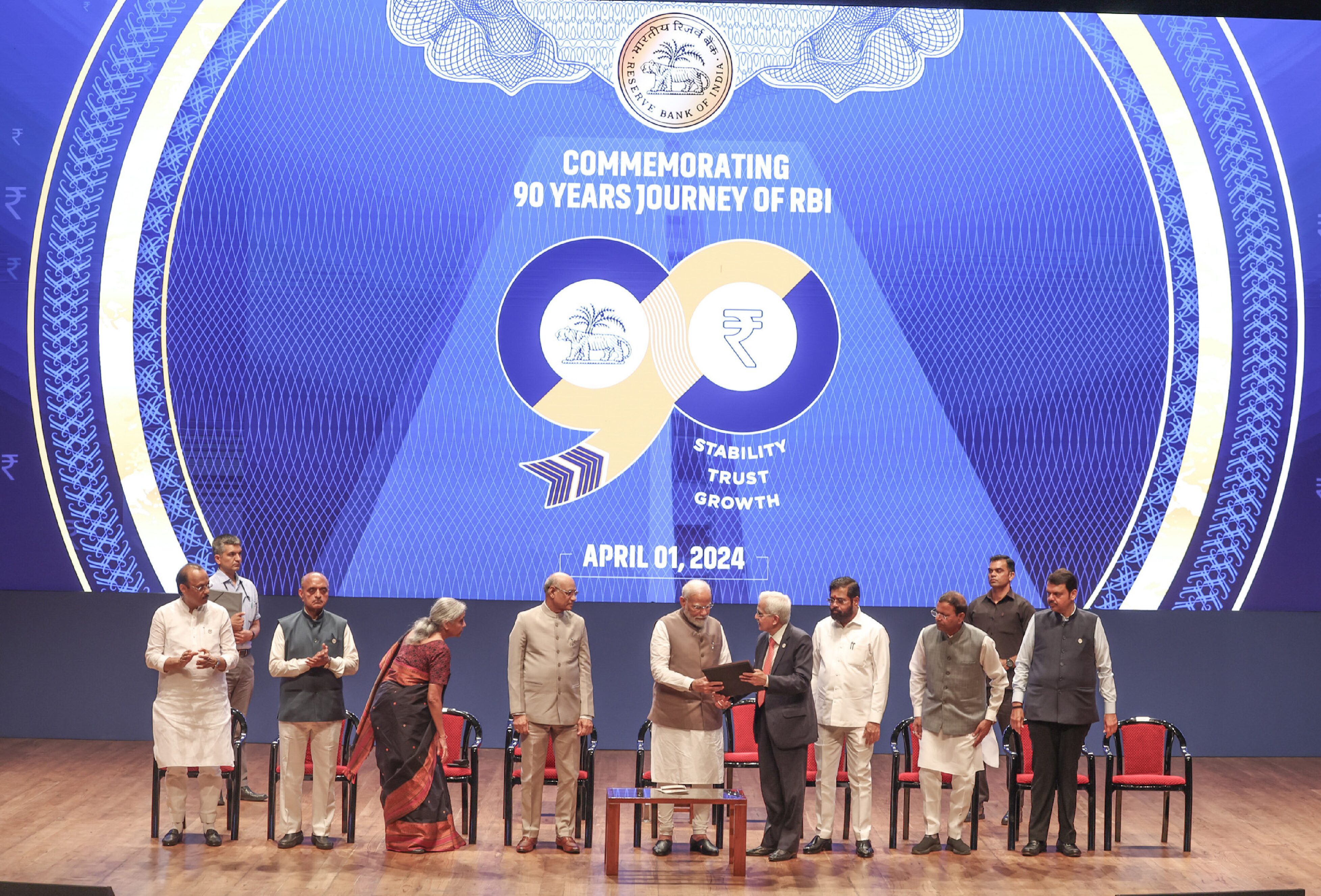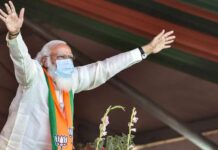Aday before Ramjas College principal Rajendra Prasad took retirement, he expressed pain over the violence that swamped the college and urged his students to adopt peaceful means to deal with any conflict of ideas in future. In an emotional appeal to the students, he said, “My heart bleeds when Ramjas College bleeds; because I have put in 32 years of blood, sweat and tears to bring Ramjas to its present stature. I wish for nothing in return except that Ramjas remains peaceful, and committed to the glorious future it is destined to set for itself.” He said, “We all must uphold and promote a conducive and peaceful atmosphere by restraining from any form of confrontation and strive towards excellent academic atmosphere, which this college is known for. Let us resolve our problems in a respectful, peaceful and constructive manner and protect and preserve the educational environment of our great institution.”
Activists of the Left-wing’s All India Students’ Association (AISA) and the rightist’s student wing Akhil Bharatiya Vidyarthi Parishad (ABVP) got involved in clashes outside Ramjas College, after the ABVP forced suspension of an event to be addressed by JNU student Umar Khalid, who was jailed last year on sedition charges for allegedly shouting anti-national slogans.
Earlier, students from the Jawaharlal Nehru University organised an event on Parliament attack convict Afzal Guru, who was hanged in 2013. The event organisers had pasted posters across the campus inviting students to gather for a protest march against “judicial killing of Afzal Guru and Maqbool Bhat” and in solidarity with the “struggle” of Kashmiri migrants. The programme called “A country without a post office – against the judicial killing of Afzal Guru and Maqbool Bhatt”, was supposed to showcase the protest through poetry, art and music.
The proposed protest march set off the row, with the Members of the Akhil Bharatiya Vidyarthi Parishad (ABVP) staging a protest to demand expulsion of the organisers. ABVP members alleged that the protest march consisted of students shouting ‘anti-India’ slogans. A purported video from the event shows students shouting anti-India and pro-Pakistan slogans. Students in the video are heard saying slogans like “Kashmir ki azai tak bharat ki azadi tak, janh rahegi jari”. The university administration ordered a “disciplinary” enquiry and said the event organisers “went ahead without permission.”
The students who were part of the committee that organised the event said, “The programme was a cultural evening organised to question the working of the Supreme Court. It was also meant to bring the grievances of the Kashmiri citizens to light. The struggles of ‘self-determination’ must be openly spoken about. Considering this is a democratic republic, why should dissent be suppressed?”
A case of sedition against several unknown students was lodged at Vasant Kunj (North) police station. It was registered under IPC Sections 124A (sedition), 120B (criminal conspiracy) and 34 (acts done by several persons with a common intention). The then JNU Students Union president Kanhaiya Kumar was arrested on sedition charges after allegations of ‘anti-national’ sloganeering against him surfaced. He was ordered to three days of police custody. Students of JNU gave a shutdown call, saying that they will not allow classes to be held on the campus till students’ union president Kanhaiya Kumar is released. JNU teachers too, joined the students in boycotting classes and said they would take classes on “nationalism” in the varsity lawns.
On February 14 last year, the Patiala House courts witnessed violence as a mob, wearing lawyer’s robe, slapped and kicked supporters of Kanhaiya Kumar. The attacks began when Kumar was scheduled to appear before metropolitan magistrate and continued for about 45 minutes; during which whoever ran into the mob looking young and carrying a mobile was slapped, kicked and chased away from the premises. The rightwing ABVP feels that the problem of India at present is terrorism and anti-nationalists are considered progressive.
Rahul Gandhi met President Pranab Mukherjee over the JNU row and the alleged targeting of students in various parts of the country. Accompanied by senior leaders and also the young MPs of the party, the Congress vice president highlighted the “lawlessness” in Delhi in the wake of Patiala House court attacks and the way the government has handled the JNU row.
In a shocking sequel to the incidents of February 15 in the Patiala House courts, violence was unleashed barely moments before a hearing on sedition charges against JNUSU president Kanhaiya Kumar was to start at 2 p.m. The Delhi Police again filled the role of a “silent spectator” as attackers defied the Supreme Court’s order for restricted entry to the trial court complex. Kumar was granted interim bail for six months by high court. Addressing a huge gathering of students on the campus, soon after release from Tihar Jail, Kumar said: “It is not azadi from India; it is azadi in India, from the corrupt practices that are going on inside the country.”
Vice chancellors hold charge of the university in trust. To give the police a free hand militates against the very spirit of the university as a space for critical engagement. On the other hand, AISA and ABVP across campuses have taken up the responsibility of raising the slogan on anti-nationalism and patriotism. Wherever democratic aspirations are expressed, ABVP feels offensive, although legislation exists to deal with unlawful activities and armed movements.
Sedition was not a part of the original Indian Penal Code (IPC) enacted in 1860 and was introduced in 1870. Since then, the law has been applied several times and has undergone several interpretations. Sedition, defined as “incitement to violence” or “disorder”, is a legislation meant to suppress the voice of Indian people and has no place in a 21st century democracy.
Students studying in varsities are certainly not immature and their main assignment is learning and research. As learned individuals, they have freedom of expression like any other in this country. But, the temples of learning should not be converted in to Fish Markets, where teaching, research and learning go to back seat. Let freedom in India does not turn to Freedom from India. Every Indian has the right to question both the fighting student groups, as their money is spent for our Varsities. March 1-15, 2017



















